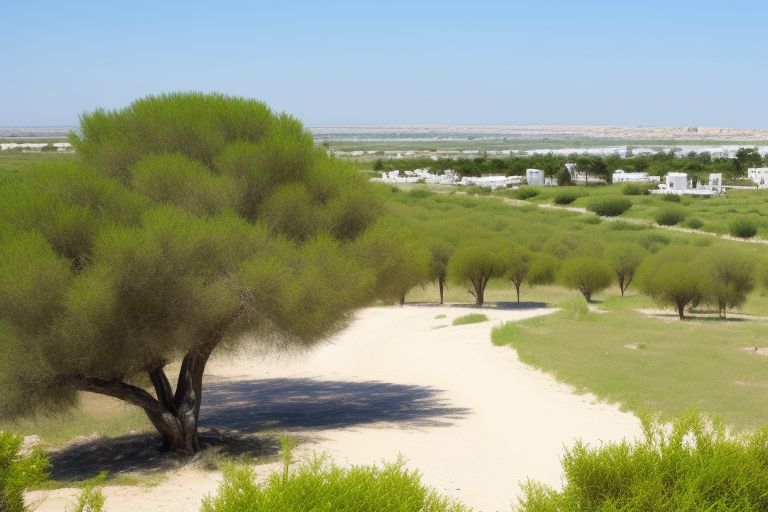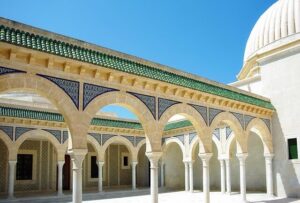Introduction
Tunisia, with its stunning beaches, endless deserts, and rich cultural heritage, is a captivating destination for travelers worldwide. However, with increasing environmental awareness, more and more tourists are looking to explore the world sustainably. Sustainable travel in Tunisia offers a unique experience, combining a love for nature with respect for the environment. This article explores eco-tourism opportunities in Tunisia, highlighting how travelers can enjoy the wonders of this country responsibly.
What is Eco-Tourism?
Definition of Eco-Tourism: Eco-tourism refers to a responsible way of traveling that respects the environment and local communities. This type of tourism aims to minimize negative impacts on the environment while promoting conservation and respect for local culture.
Importance of Eco-Tourism in Tunisia: Tunisia is rich in biodiversity and possesses invaluable natural and cultural heritage. Eco-tourism helps protect these treasures while providing economic benefits to local communities.
Benefits of Sustainable Travel in Tunisia
Reducing Environmental Impact: Choosing sustainable travel means reducing pollution and environmental degradation. Eco-tourists adopt practices such as recycling, using renewable energy, and respecting natural habitats.
Supporting Local Communities: Eco-tourism helps local economies by creating job opportunities and encouraging sustainable development. This approach ensures that the benefits of tourism are distributed equitably among the local population.
Authentic Experiences: Sustainable travel offers authentic experiences, allowing tourists to connect with local culture, participate in traditions, and learn from local guides.
Top Eco-Tourism Destinations in Tunisia
Ichkeul National Park: This park is a UNESCO biosphere reserve and hosts a wide range of animal and plant species. It is an ideal place for nature lovers and birdwatching enthusiasts.
Djerba: Known as the island of dreams, Djerba offers a unique eco-tourism experience with its pristine beaches and local markets. The island’s eco-resorts commit to environmental conservation and sustainable resource use.
Matmata: Famous for its troglodyte dwellings, Matmata offers visitors a unique opportunity to explore traditional Berber life and discover an extraordinary landscape.
Sustainable Activities to Do in Tunisia
Hiking and Trekking: Explore the Atlas Mountains or the Sahara Desert through well-marked hiking trails. These activities allow direct contact with nature while respecting it.
Birdwatching: Tunisia is a paradise for birdwatching enthusiasts. Ichkeul National Park and Chott El Jerid Lake are ideal places to observe various bird species.
Cultural Visits: Participating in guided tours of historic cities like Tunis, Carthage, and Sidi Bou Said provides a better understanding of the country’s rich history and culture while supporting local guides.
Tips for Sustainable Travel in Tunisia
Choose Eco-Friendly Accommodations: Opt for hotels and resorts that adopt sustainable practices such as using renewable energy, recycling, and reducing waste.
Respect Nature and Local Culture: Follow local conservation rules, respect wildlife and plants, and be sensitive to local cultural traditions.
Reduce, Reuse, Recycle: Adopt the 3R rule to minimize waste. Bring a reusable water bottle, canvas bags, and try to reduce the use of single-use plastics.
Conservation Projects in Tunisia
Ichkeul Project: This project aims to preserve the ecosystem of Ichkeul National Park through species monitoring and conservation activities.
Reforestation Program: Reforestation projects are ongoing in various regions of Tunisia to combat desertification and promote biodiversity.
How to Travel Sustainably in Tunisia
Use Public Transportation: Opt for public transportation like trains and buses, which are more sustainable than private car travel.
Join Sustainable Tours: Choose tour operators that promote sustainable travel practices and work closely with local communities.
Buy Local Products: Support the local economy by purchasing products and souvenirs handcrafted by local communities.
Conclusion
Sustainable travel in Tunisia offers a meaningful way to explore this wonderful country. Eco-tourism not only protects the environment but also enriches the traveler’s experience through a deeper connection with nature and local culture. Choosing sustainable travel in Tunisia means contributing to the conservation of its natural and cultural heritage, ensuring that future generations can enjoy the same wonders.
FAQ
What are the benefits of eco-tourism in Tunisia? Eco-tourism in Tunisia reduces environmental impact, supports local economies, and offers authentic and sustainable experiences to travelers.
Where can I go birdwatching in Tunisia? The best places for birdwatching in Tunisia are Ichkeul National Park and Chott El Jerid Lake, which host a wide variety of bird species.
How can I travel sustainably in Tunisia? You can travel sustainably by using public transportation, choosing eco-friendly accommodations, joining sustainable tours, and respecting local environmental and cultural norms.
What are the eco-tourism destinations in Tunisia? Some of the top eco-tourism destinations in Tunisia include Ichkeul National Park, the island of Djerba, and Matmata.
Why is respecting local culture important during travel? Respecting local culture is essential to ensure that traditions and cultural practices are preserved and that local communities benefit from tourism in an equitable and sustainable manner.
What does it mean to travel sustainably? Traveling sustainably means adopting practices that reduce negative environmental impacts, support local economies, and respect the culture and traditions of the places visited.
For updated travel information, click here.
To read more of our articles, click here.





